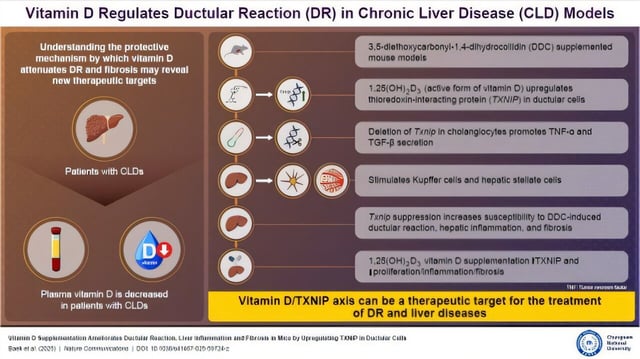Overview
- Chronic liver disease affects about 1.5 billion people worldwide and currently has no treatments beyond liver transplantation
- A study published in Nature Communications demonstrates that vitamin D supplementation upregulates TXNIP in bile duct cells to counteract pathological ductular proliferation
- Mouse models lacking TXNIP in cholangiocytes exhibited exaggerated ductular reaction alongside increased liver inflammation and fibrotic scarring
- Txnip deficiency was shown to elevate TNF-α and TGF-β secretion by cholangiocytes, triggering Kupffer cell activation and collagen deposition by hepatic stellate cells
- Investigators urge clinical trials to assess vitamin D as an affordable adjunct therapy for chronic liver disease
